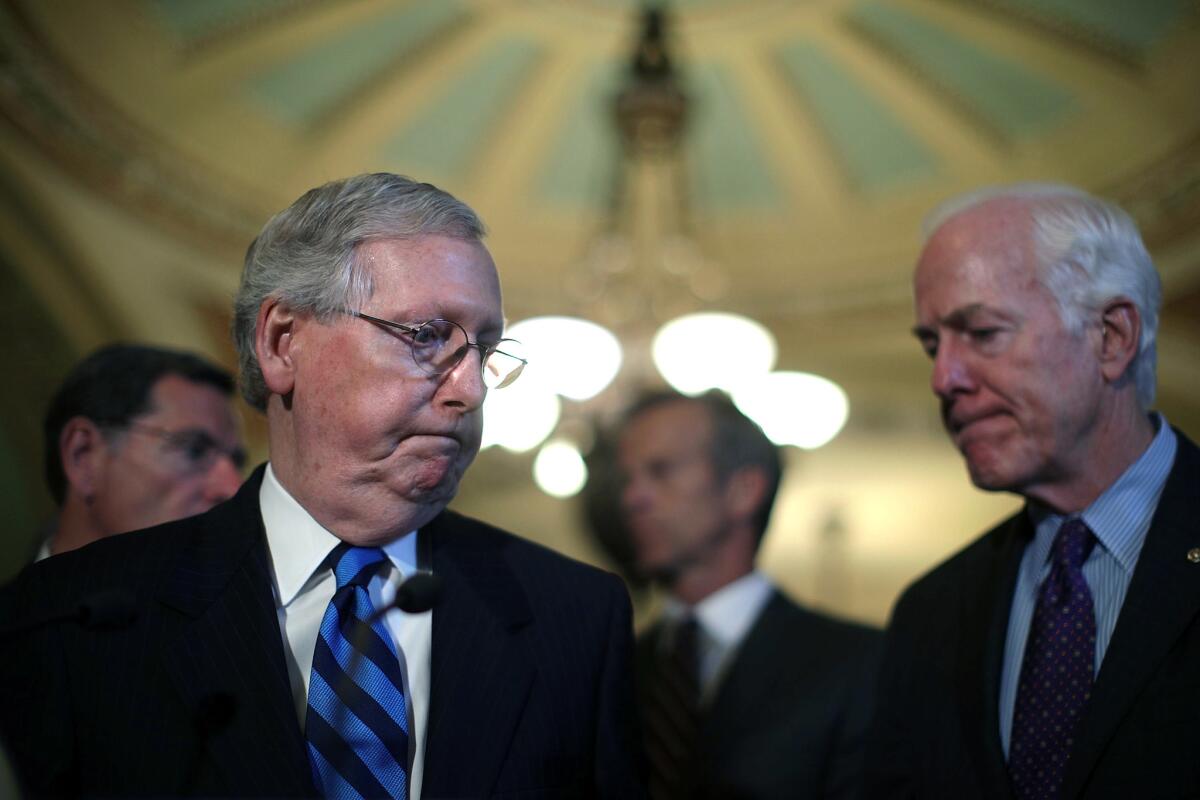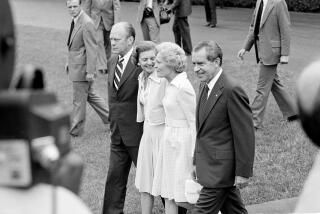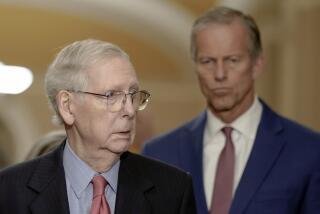Opinion: How will history judge the Republicans who failed to criticize President Trump?

To the editor: There is an analogy to Donald Trump’s ascendancy to the White House and the fear among Republicans that it inspired. (“Republicans in Congress still don’t want to talk about possible collusion between Trump and Russia,” July 11)
In February 1950, Sen. Joseph McCarthy asserted that hundreds of known communists were working in the Department of State. He went on to lead the “red scare” by bullying and defaming other Americans to exalt himself and his crusade.
McCarthy’s behavior was tolerated by the Republican Party until 1953, when a Republican became president. By 1954, his rants and unrestrained cruelty became unacceptable.
In an attempt to revitalize his anticommunist witch hunt, he chose to target the U.S. Army. At the Senate Government Operations Committee hearing, McCarthy accused a young associate in the law firm representing the Army of being involved in the Communist Party.
After Joseph N. Welch, the lead lawyer, asked, “Have you no sense of decency, sir, at long last?” and went on to defend his attorney, the audience burst into raucous applause. By the end of the year, the U.S. Senate had officially censured McCarthy.
Rather than worry about their political careers, Republican politicians may want to think about the role they will play in history.
Mary MacLaren, Rider, Solana Beach
Follow the Opinion section on Twitter @latimesopinion and Facebook
More to Read
A cure for the common opinion
Get thought-provoking perspectives with our weekly newsletter.
You may occasionally receive promotional content from the Los Angeles Times.






